Digital technology helps people stay healthier, cut costs Report on Tokyo Forum 2019 Parallel Session “Lifelong Well-being: Self-managing Healthy Society”
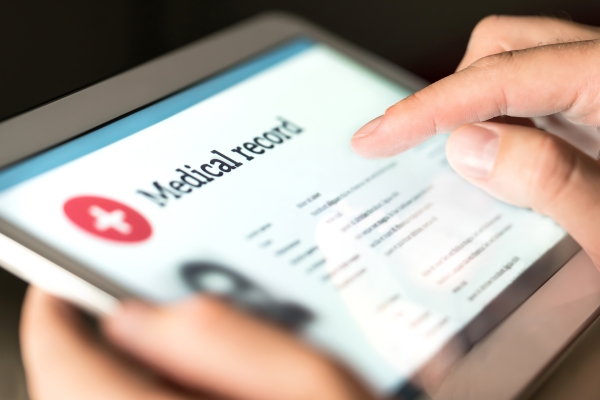
This series of articles covers Tokyo Forum 2019, a new annual global forum to promote discussion and exchange ideas on the challenges facing the world and humanity. The University of Tokyo and Chey Institute for Advanced Studies co-hosted the inaugural forum on the university’s Hongo Campus on Dec. 6-8, 2019. Over 120 leaders from politics and economics to culture and the environment came from around the world to join discussions under the theme “Shaping the Future."
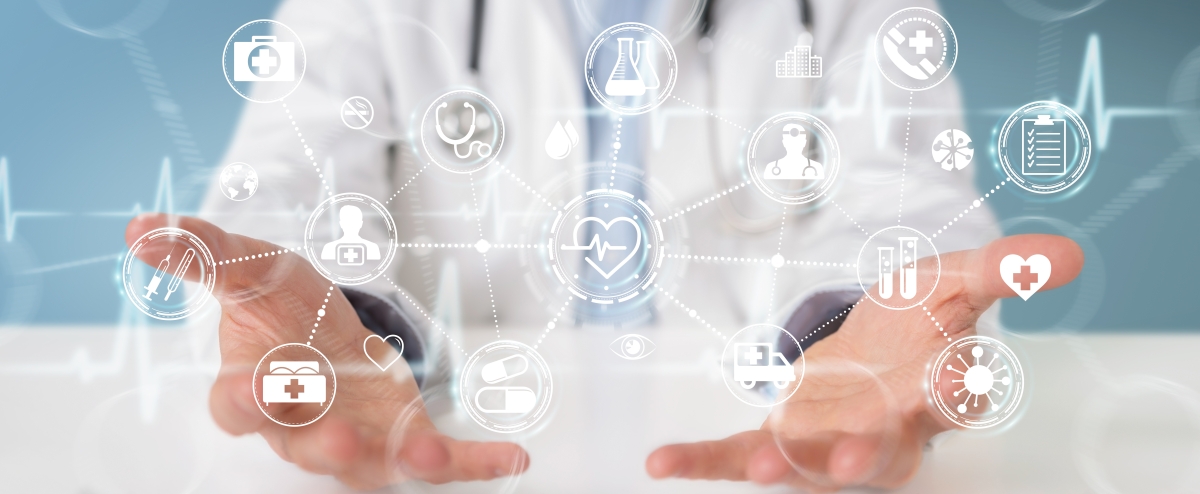
Many people are starting to embrace “digital health,” which includes mobile health, health information technology, wearable devices and telemedicine. Image: Shutterstock
For people in Japan, whose life expectancies are among the longest in the world and who enjoy universal health coverage, their general mindset is, “I go to the hospital if I get sick.”
But this attitude will have to change as Japan’s population rapidly grays and shrinks, warned University of Tokyo Professor Yuichi Tei (Chung Ung-il).
“By 2060, close to half of the population will be aged,” Tei said, adding that younger people will find it more difficult to shoulder soaring medical costs due to the aging population. Tei said this problem is by no means unique to Japan, noting that it will affect the entire world by 2050. He said people need to change their mindset to, “I take care of my own health.”
Cutting-edge science and technology can help people change their habits and lifestyle and stay healthy. Many people are starting to embrace “digital health,” which includes mobile health, health information technology, wearable devices and telemedicine. But since applying technology always brings up issues involving privacy and ethics, it’s important to find a balance between its risks and benefits.
The parallel session “Lifelong Well-being: Self-managing Healthy Society,” held on Dec. 7, 2019, as part of Tokyo Forum 2019, featured experts from different countries and various fields discussing how to get people to lead healthy lives — without compromising their privacy.
Participation and empowerment of individuals
People should use digital health technology and take control of the health care services they receive in order to manage their health more effectively, experts agreed.
“We need to incorporate cutting-edge science and technology that help create effective and objective measures over health to replace reinforced, subjective ones,” Tei, also the organizer of the session, said. He noted the advantages of sensors and digital devices in monitoring health, compared to analog means such as questionnaires.
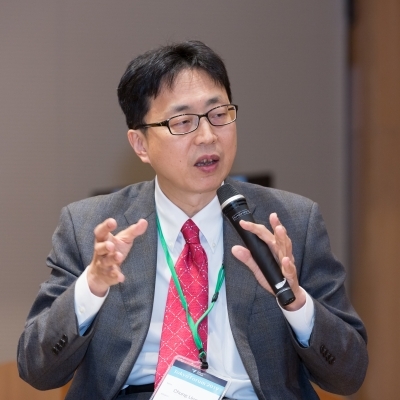
Google Cloud Product Manager Arie Meir introduced some state-of-the-art health-monitoring technologies. He said apps have been developed to help people manage their health and stay connected to a computerized “coach,” which gives them feedback and brings out their competitive side to do more to become healthy.
Encouraging messages like “Good job!” and “You have walked more steps than all of your friends,” as well as monetary rewards have proven effective in getting people to exercise and stick to a healthy diet, Meir said. That in turn helps insurance companies reduce the medical costs they bear, he added.
But providing health data to private companies or the government through apps or health care services raises the same question we’ve faced since the dawn of big data: “Who owns data?” European governments say that individuals basically own their data and have the right to control it. But the United States allows private companies to collect personal data, although there are certain regulations in areas such as health care.
Taiwan is a unique case when it comes to the ownership of medical data: The government owns and controls the medical data of the island’s 24 million people. Chao Heng Tai, executive vice president of Fu Jen Catholic University Hospital, described Taiwan’s centralized MediCloud system. It allows doctors to access patients’ medical records by using an IC card assigned to each patient. Data is made available for research and commercial use after removing information from it that could be used to identify an individual and it is aggregated.
In Israel, people own their personal data, but it is managed by four health maintenance organizations (HMOs), noted Eran Toledo, executive vice president and chief technology officer of Israeli firm Sanara Ventures. According to Toledo, data is stored in every HMO, and when people visit the hospital, doctors can see their patients’ entire medical records. But once the patients check out, the hospital no longer has access to the information.
Israel is known as a front-runner in promoting digital health and has hundreds of startups in this field. In early 2018, the Israeli government approved a 1 billion-new Israeli shekel (about 30 billion-yen) national digital health project that’s aimed at digitizing the medical records of everyone in Israel. The idea is to use big data to facilitate innovations in personalized medicine, disease management and preventive treatment.
Toledo said the question is not so much who owns the data, but who can sell it. In Israel, insurers, HMOs and hospitals are allowed to sell the data, he explained. Patients own the data, but they don’t have control over it, he said, noting that patients in Israel are generally willing to compromise their privacy in return for good medical treatment.
Health care data is much less centralized in the United States and Japan. The U.S. government controls health care data for research purposes, while in Japan, local governments and hospitals store it separately. Some other data is held by the central government, but these sets of data are not integrated.
Nearly all the speakers at the session agreed that state-of-the-art technology, including encryption, should be used to safeguard the security of health care data. But Meir expressed concern that U.S. firms are now diverting less human and monetary resources to security, while Toledo said it is difficult to completely protect health care data, simply because so many computer workstations are involved.
Data engineering in health and medical data platforms
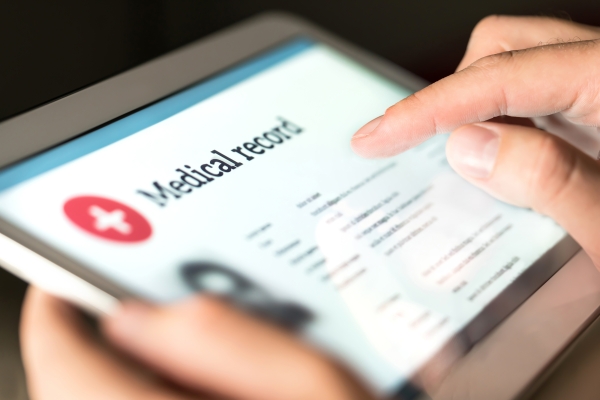
The session heard about an ambitious project launched by U.S. health care giant Johnson & Johnson. Mark Bach, vice president of the company’s Office of the Chief Medical Officer, described the Accumulus Project, which is aimed at continuously uploading medical data to the cloud for real-time analyses with prealigned protocols and tools. The data and the analyses are shared by sponsors, including drugmakers, and regulators, in order to achieve innovations more quickly and cheaply. Bach said the project team has started to identify technical obstacles, such as varying data standards, but many challenges must still be addressed.
Google Cloud’s Meir said his company’s goal is to help accelerate the evolution of the health data ecosystem, where data collected by various stakeholders are integrated and utilized for health care practice and research, noting such advances would entail multiple factors, including security, privacy and compliance.
Tei said eConsent — which is designed to empower patients to make informed decisions through the use of interactive, multimedia components and to improve the quality and efficiency of clinical trials — is a key technology for success in data engineering.
Getting patients to consent, or reconsent, to use their data involves meticulous and complicated procedures, Tei said. eConsent has the potential to make it easier for patients to understand what they are consenting to, he noted.
Most people don’t want to spend a significant amount of their time in managing their health care data, Meir said, adding Google Cloud is working on eConsent. He said the user experience needs to be simplified to reach the goal of empowering individuals to make the right decisions.
Traceability encourages people to share data
The emergence of personal information banks, where individuals can deposit their data for research and commercial use, has broadened the horizon for using big data to advance science and technology, as well as being more convenient.
Tei said it is important to have a mechanism of an information trust that lets people deposit their personal data in an information bank. The bank provides the data to organizations or companies in line with people’s prestated wishes, and they receive direct and indirect rewards, in the form of money or services, for providing it.
But Toledo said monetary rewards to individuals are not always necessary because some people are satisfied to know that sharing their data helps to improve the medical services they receive or benefits the community.
In addition to incentives, granting traceability of personal data may be essential in promoting the use of information banks, Tei said, explaining that people can trace which organizations and companies have used their data for what purposes.
All the technologies and relevant issues discussed in the session were geared toward making people healthier and our health care systems sustainable. Shinjiro Nozaki, a compliance and risk management officer at the World Health Organization, summed up the discussion’s key message by saying that we need individual participation and empowerment to encourage actions to stay healthy into old age.
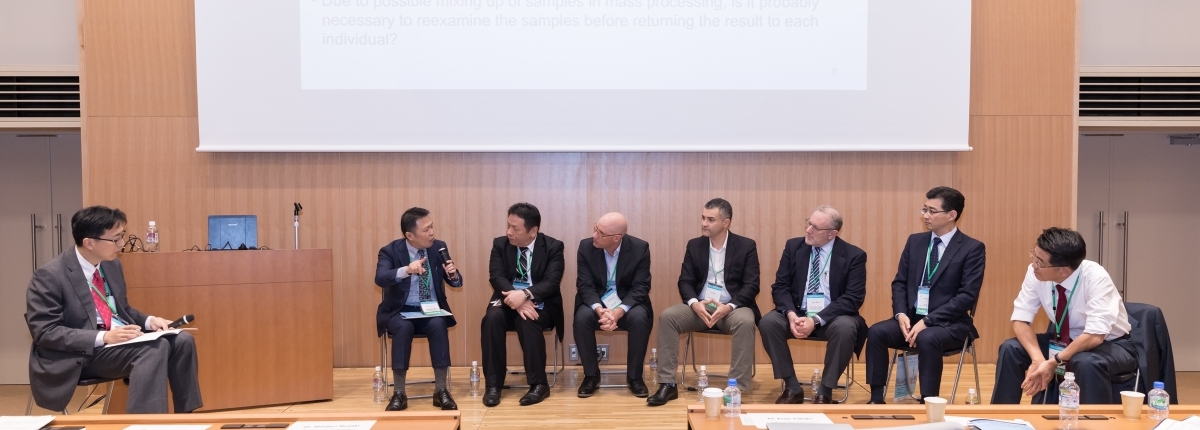
Experts discuss the future of health and medical care during the parallel session “Lifelong Well-being: Self-managing Healthy Society,” held on Dec. 7, 2019, as part of Tokyo Forum 2019.






